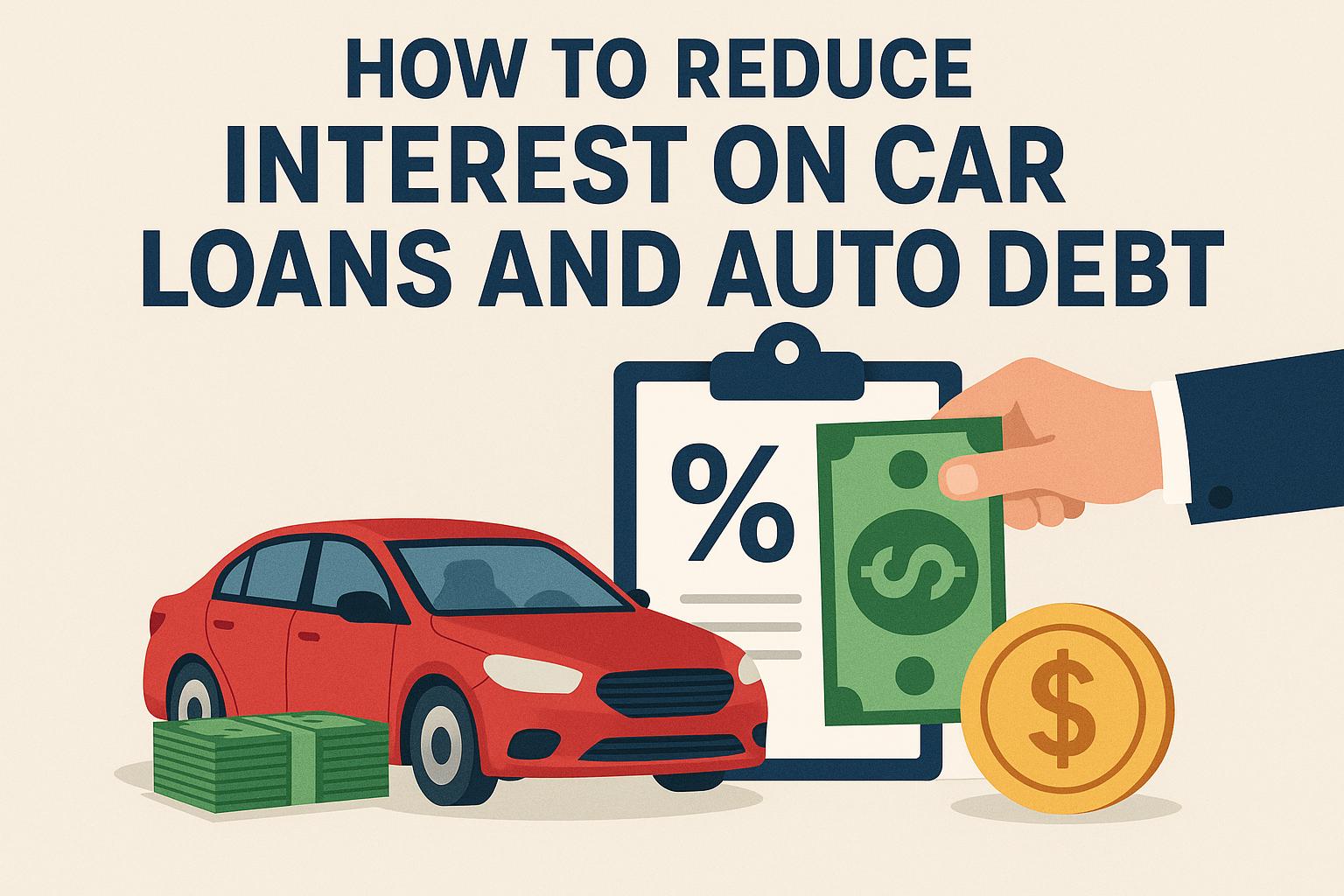Understanding Auto Loan Interest Rates
When purchasing a vehicle, many individuals find themselves needing financial assistance to manage the high costs involved. This is where auto loans come into play, providing a structured way to afford a car through manageable payments over time. However, a crucial aspect of car loans that borrowers must pay attention to is the interest rate applied to the borrowed amount. Without a clear understanding of how these rates work, borrowers may end up paying significantly more over the life of the loan than initially anticipated. To effectively minimize interest costs and manage auto debt, it is essential to have a comprehensive understanding of car loan interest rates.
Factors Affecting Interest Rates
Various elements play a role in determining the interest rate a borrower will be offered when applying for a car loan. These elements include personal and external factors, each contributing to the overall cost of borrowing.
1. Credit Score: A borrower’s credit score is one of the most significant determinants of interest rates. Individuals with higher credit scores generally qualify for lower interest rates, as they are viewed as more reliable borrowers. Conversely, those with lower scores may face higher rates due to perceived risks.
2. Loan Term: The duration of the loan also impacts the interest rate. Typically, shorter loan terms come with lower rates, although this does result in higher monthly payments. It’s essential for borrowers to find a balance between affordable monthly payments and reduced interest costs.
3. Loan Amount: The total amount borrowed can influence the interest rate as well. Larger loans might come with different rates compared to smaller ones, depending on lender policies and borrower profiles.
4. Economic Conditions: The broader economic environment plays a crucial role. For instance, during economic downturns, central banks might lower interest rates, leading to more favorable borrowing conditions for consumers.
Improving Your Credit Score
Your credit score can be seen as a snapshot of your creditworthiness, and it is a critical factor in securing a favorable interest rate on a car loan. Improving your credit score involves several proactive steps:
1. Timely Bill Payments: One of the most effective ways to improve your credit score is to ensure all bills are paid promptly. Late payments can have a significant negative impact on your score.
2. Reducing Outstanding Debt: By paying down existing debts, you can lower your credit utilization ratio, which is favorable in the eyes of lenders. This can lead to better interest rates on future loans.
3. Avoiding New Credit Inquiries: Each hard inquiry into your credit report can result in a temporary drop in your score. Avoid unnecessary credit applications to maintain a stable score.
4. Regular Credit Report Checks: Monitoring your credit report for errors and rectifying them can prevent unwarranted score reductions. Staying informed about your credit status empowers you to make strategic financial decisions.
Refinancing Options
Refinancing presents an opportunity for borrowers to potentially reduce their interest rates by replacing their existing car loan with a new one, ideally at a lower rate. Situations where refinancing might be advantageous include an improved credit score since the original loan, or a decrease in market interest rates. However, refinancing should be approached with caution, taking into account any associated fees that could offset the benefits of a lower rate.
Choosing an Optimal Loan Term
Selecting an appropriate loan term is critical in managing the total interest paid over time. Longer loan terms might appeal due to their lower monthly payments, yet they lead to higher overall interest expenses. Opting for a shorter term can provide savings, though borrowers must ensure their financial ability to handle the increased monthly payments. It is crucial to align loan term selections with personal financial situations to accomplish long-term savings.
Making Extra Payments
One effective method for minimizing interest costs on an auto loan is through the strategic implementation of extra payments. By surpassing the minimum monthly payment, or by making additional payments when possible, borrowers can reduce the principal balance more swiftly. This reduction in principal leads to decreased interest charges over the life of the loan. It is important to confirm with your lender how extra payments are applied, ensuring they contribute towards paying down the principal rather than future interest.
Negotiating Terms Before Purchase
Before finalizing a vehicle purchase, there is often room for negotiation, particularly concerning loan terms. Engaging with multiple lenders to compare loan offers can provide a clearer picture of your options and strengthen your position in negotiations. Key elements to focus on during this process include the annual percentage rate (APR), the spectrum of fees, and any potential penalties for early repayment. An informed approach to negotiation can yield significant savings over time.
Summary
Effectively reducing interest costs on car loans and managing auto debt requires a proactive, informed strategy. Steps such as improving your credit score, carefully selecting loan terms, considering refinancing opportunities, and making extra payments can significantly contribute to lowering the total cost of borrowing. Through a comprehensive understanding of these factors and their influence on interest rates, car buyers can successfully mitigate the financial burden of auto loans. This informed approach not only results in immediate financial advantages but also contributes to a stable and sustainable financial future.


